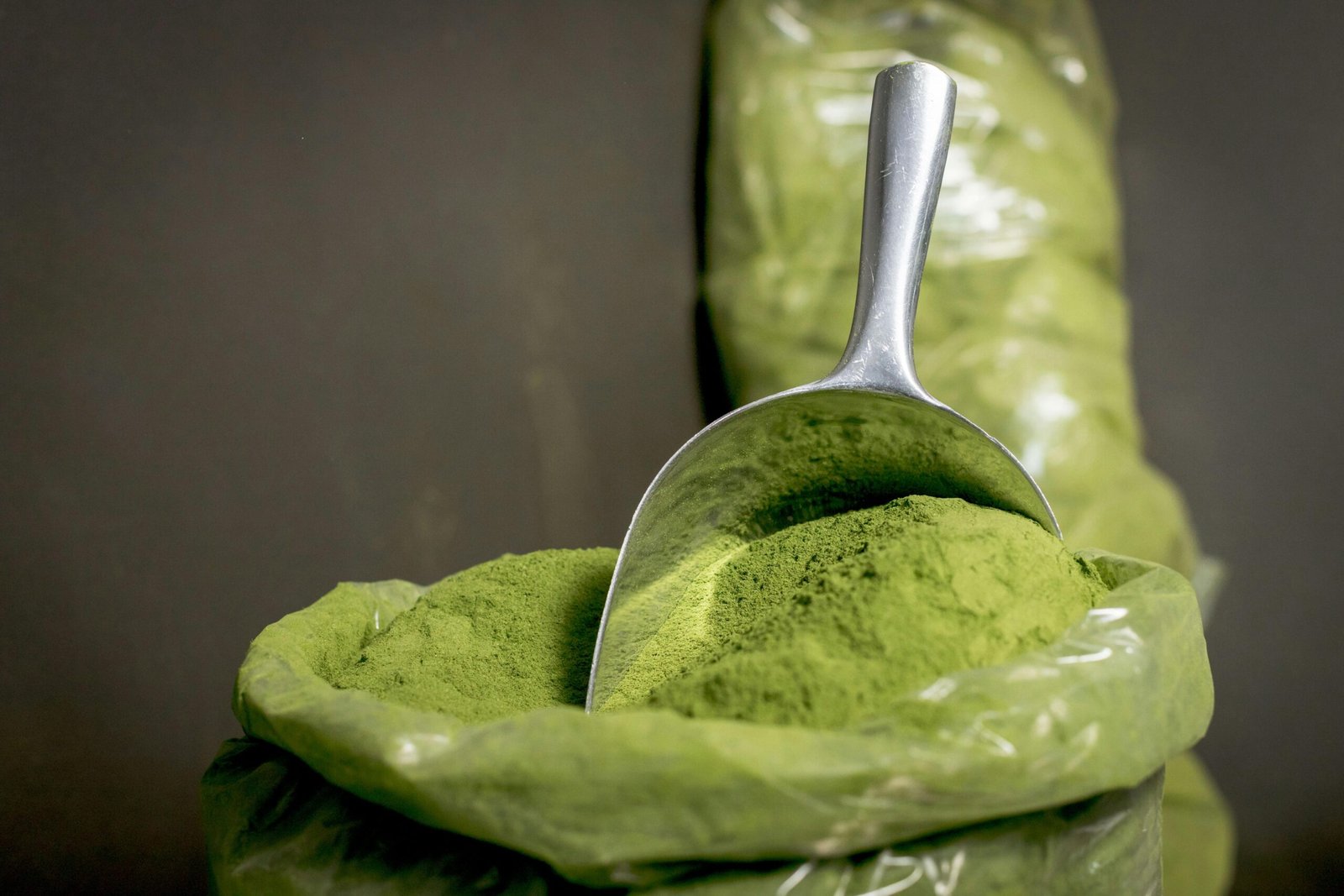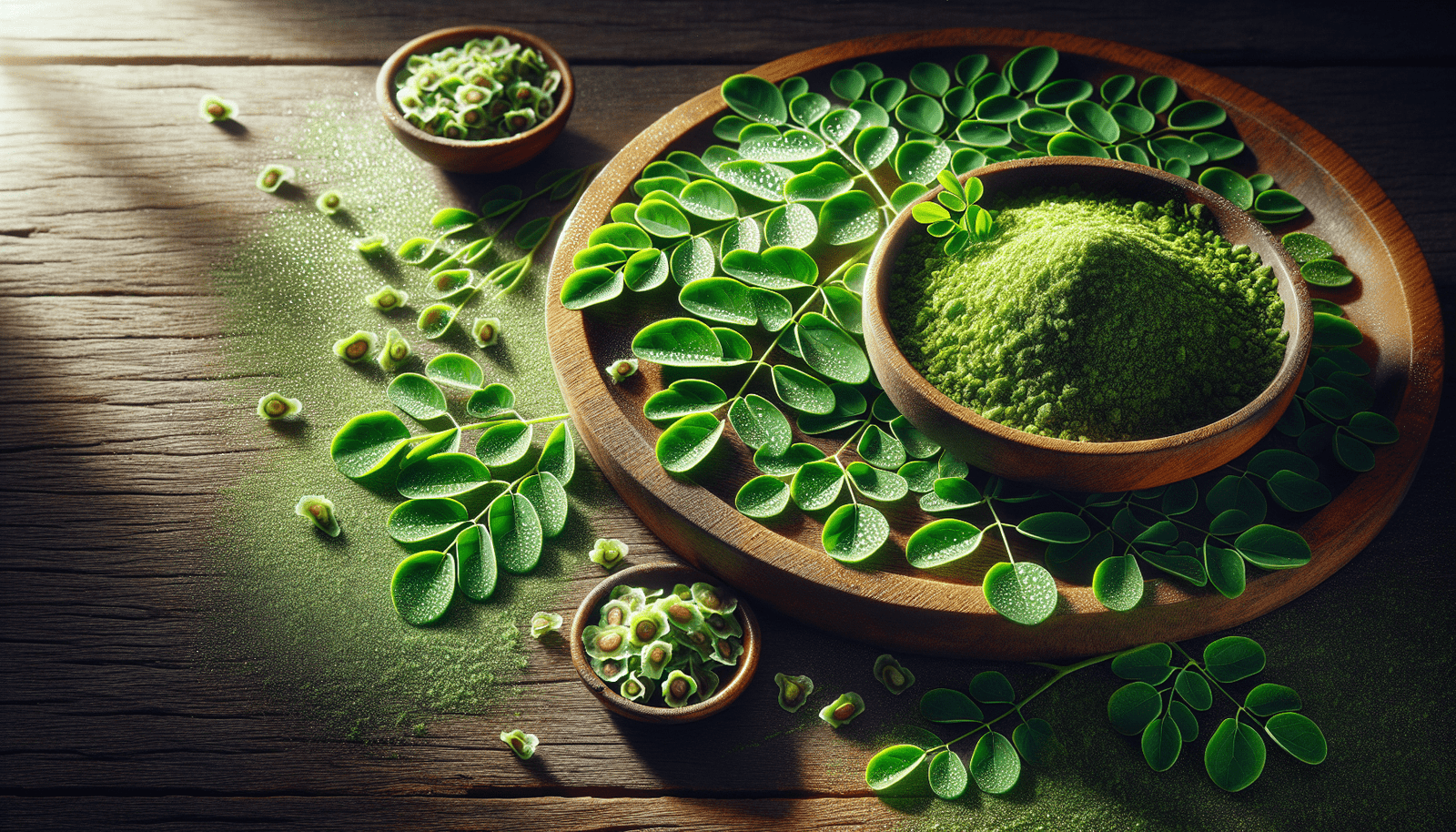Have you ever felt that mid-afternoon slump where your energy levels are at an all-time low? Many people search for that magic solution to boost their energy levels, and Moringa seems to pop up frequently in those discussions. But does Moringa actually work for boosting energy? Let’s break it down.

What is Moringa?
Moringa, often referred to as the “drumstick tree” or the “miracle tree,” is a plant that is native to parts of Africa and Asia. It has gained popularity in recent years due to its remarkable nutritional profile and potential health benefits. You might be surprised to learn that every part of the Moringa tree—leaves, seeds, pods, and even flowers—can be consumed in various ways.
Nutritional Profile of Moringa
The leaves of the Moringa tree are particularly rich in vitamins and minerals. Here’s a quick overview of what Moringa brings to the table:
| Nutrient | Amount (per 100g) | Benefit |
|---|---|---|
| Protein | 9g | Supports muscle repair and growth |
| Vitamin A | 18,000 IU | Promotes healthy vision |
| Vitamin C | 220mg | Boosts the immune system |
| Calcium | 440mg | Essential for bone health |
| Iron | 4mg | Important for oxygen transport |
| Fiber | 2g | Aids in digestion |
You can see that Moringa is not just a leafy green; it’s a nutrient powerhouse that may contribute positively to your energy levels.
How Does Moringa Boost Energy?
You might wonder how such a little tree can have such a big impact on your energy levels. Moringa is packed with antioxidants, vitamins, and amino acids — all of which can play significant roles in maintaining energy levels throughout your day.
Rich in Antioxidants
One of the standout features of Moringa is its high antioxidant content. Antioxidants help combat oxidative stress in the body, which can be a significant factor in fatigue and energy depletion. When your body is under stress, it can lead to feelings of tiredness. By consuming Moringa, you may help reduce oxidative stress and increase your overall vitality.
A Source of Protein
Protein is essential for energy production, as it gives you the amino acids your body needs to build and repair tissues. The protein in Moringa can offer you a plant-based option to help keep your energy up, especially if you follow a vegetarian or vegan diet.
Vitamins and Minerals for Metabolism
The vitamins and minerals found in Moringa are essential for several metabolic processes. For example, B vitamins are crucial for energy metabolism, and Moringa contains several of these vitamins, including B1 (Thiamine) and B2 (Riboflavin). Integrating Moringa into your diet may therefore support your metabolic functions.

Scientific Research on Moringa and Energy Levels
You may be curious if there’s any scientific backing to the claims about Moringa’s ability to boost energy levels. Here’s what some studies suggest:
Moringa and Fatigue
Some studies indicate that individuals consuming Moringa experienced lower levels of fatigue. A study published in the “Journal of Medicinal Food” found that Moringa could positively affect energy levels in people suffering from chronic fatigue. The researchers noted improvements in the participants’ physical performance and overall energy after incorporating Moringa into their daily diet.
The Role of Moringa in Athletic Performance
Athletes are also exploring Moringa’s potential. Research presented at various exercise science conferences has suggested that Moringa supplementation could enhance endurance and reduce fatigue in athletes due to its nutritious content.
How to Incorporate Moringa into Your Diet
Now that you know about the benefits of Moringa for energy, you might be wondering how to add it into your daily routine. Here are some simple ways to incorporate Moringa into your diet.
Moringa Powder
One of the most popular forms of Moringa is powder. You can easily mix it into smoothies, sprinkle it on salads, or add it to soups. Just a teaspoon or two can give you a healthy energy boost without overpowering your meals.
Moringa Tea
If you’re looking for a warm drink to energize you, Moringa tea might be the answer. Brew Moringa leaves in hot water for a refreshing beverage that can perk you up.
Moringa Capsules
For those who prefer a more straightforward approach, Moringa capsules or supplements are readily available. They’re an easy way to get your dose of Moringa without having to prepare it yourself.

Potential Side Effects of Moringa
While Moringa has many benefits, it is also essential to be aware of any potential side effects. Like with any supplement, moderation is key.
Upset Stomach
Some individuals may experience digestive issues after consuming Moringa, particularly if taken in large quantities. Start with a small amount to see how your body reacts.
Interaction with Medications
Moringa could potentially interact with certain medications, particularly blood thinners. If you’re on medication, it’s wise to consult with a healthcare professional before adding Moringa to your diet.
Overall Lifestyle Considerations for Energy Boosting
Even with the best dietary choices, there are other facets of your lifestyle that can affect your energy levels. Here are some other ways to give your energy a lift.
Balanced Diet
Eating a balanced diet rich in whole foods, including fruits, vegetables, whole grains, and proteins, is crucial for maintaining high energy levels. As nourishing as Moringa is, it should be a part of a well-rounded meal plan.
Adequate Sleep
Quality sleep can make or break your energy levels. While Moringa can help you feel more energetic during the day, it won’t replace the need for a good night’s rest. Aim for 7-9 hours of sleep per night.
Regular Exercise
Physical activity can significantly boost your energy levels. It might seem counterintuitive, but expending energy through exercise often leads to increased energy in the long term. Incorporate regular workouts into your routine for the best results.
Hydration
Staying hydrated is essential for optimizing your energy levels. Dehydration can lead to feelings of fatigue, so make sure you’re drinking enough water throughout the day.

Making Moringa a Part of Your Daily Routine
Integrating Moringa into your daily routine doesn’t have to be complicated or time-consuming. Here’s a simple plan to help you get started and make the most of its energy-boosting benefits.
Morning Kickstart
Start your day on a positive note by adding Moringa powder to your morning smoothie. Combine it with your favorite fruits and some spinach for an extra green kick. You’ll not only feel revitalized, but you’ll also be giving your body a head start with essential nutrients.
Midday Snack
When you feel your energy dipping in the afternoon, consider Moringa tea as a refreshing pick-me-up. Pair it with a healthy snack, such as nuts or a piece of fruit, to fuel your body before tackling the rest of your day.
Evening Wind Down
As you wind down, enjoy a small serving of Moringa in a salad or a light meal. This can create a satisfying end to your day while still offering nutritional benefits.
Weekend Meal Prep
Consider preparing Moringa-infused meals during your weekend meal prep sessions. That can help you easily access nutritious and energizing meals throughout the week.
Conclusion: Is Moringa the Energy Solution You’ve Been Looking For?
In summary, Moringa appears to have several properties that may contribute to increased energy levels. With its rich nutritional profile, its potential role in reducing fatigue, and its ease of incorporation into various meals, Moringa has all the makings of a great addition to your health regimen.
However, it’s also important to keep in mind that no single food or supplement can replace a consistently healthy lifestyle. By complementing Moringa with a balanced diet, proper sleep, regular exercise, and hydration, you can create a holistic approach to feeling your best every day.
As you consider whether Moringa could be a beneficial part of your life, always consult with a healthcare professional, especially if you have underlying health conditions or are taking medication. You deserve to feel energetic and vibrant, and a healthy approach to wellness is the way to get there.
